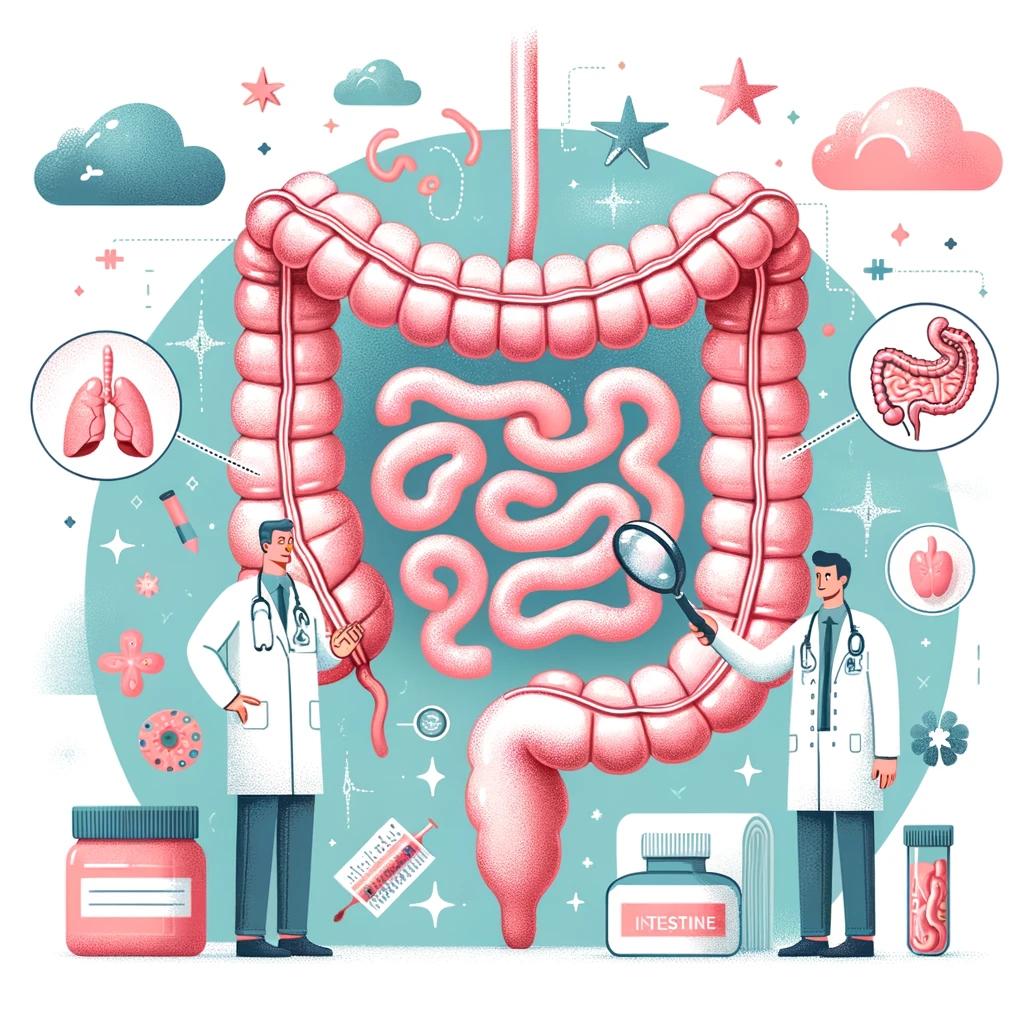3. What Are The Major Parts Of The Small Intestine?
YThe small intestine is divided into three sections: the beginning, the middle, and the end. Despite the fact that there is no real distinction between the parts, they do have slightly different characteristics and roles to play.
Duodenum – The duodenum is the first section of the small intestine into which the stomach feeds. It’s a short, descending chute (about 10 inches long) that curves in a “C” shape around the pancreas before joining the rest of the coiled intestines.
Jejunum – The remaining small intestine is arranged in numerous coils within the lower abdominal cavity. Its middle section, known as the jejunum, accounts for slightly less than half of the remaining length. The jejunum is distinguished by numerous blood vessels that give it a deep red color.
Ileum – The ileum is the small intestine’s final and longest section. The small intestine’s walls begin to thin and narrow, and blood supply is reduced. Food spends the most time in the ileum, which absorbs the most water and nutrients.
4. What Are The Significant Functions Of Small Intestine?
The small intestine is where the majority of the lengthy digestion process takes place. It does the following works:
Food is broken down in a systematic manner.
Nutrient absorption.
Water is extracted.
Food is moved along the gastrointestinal tract by this enzyme.
5. What Happens If Small Intestine Not Working Properly?
The small intestine is responsible for absorbing nutrients and water from your food. You may experience nutritional deficiencies and watery stools if these functions are impaired (diarrhea). The small intestine’s muscle movements aid in the breakdown and passage of food through your body. Indigestion and constipation may occur if these movements are hampered. Inflammation of the small intestine can be caused by a variety of diseases and infections, resulting in abdominal pain, nausea, and vomiting.
6. What Causes Small Intestine Damage?
Depending on the condition, the causes of small intestine problems vary. In some cases, the causes may be unknown and may include:
Celiac disease (Gluten sensitivity): Celiac disease is believed to be genetic, but only certain individuals who carry the disease’s genes develop the condition. People may contract the disease as a result of environmental triggers.
Crohn’s disease: The causes are unknown, but it is thought to be a complex combination of genetics and one or more environmental triggers.
SIBO (Small intestinal bacterial overgrowth): The change in bacteria is thought to be caused by slow motility (decreased movement), low stomach acid levels, or surgery on the small bowel.
7. How One Maintains A Healthy Small Intestine?
Following these general health guidelines can help you take care of your intestine.
Consume Plants.
Fruits, vegetables, and whole grains help your bowels get enough fiber. Fiber feeds the good bacteria in your gut while also sweeping away residue that the less-beneficial bacteria may feed on. More fiber will make you thirstier, which is a good thing. Fiber and water both help to keep your bowel movements regular, which aids the small intestine in its housekeeping.
Moderation In Tobacco Use, Alcohol Consumption, And Medications.
You’re probably aware that tobacco and alcohol increase stomach acid, which erodes the protective lining. You might be surprised to learn that NSAIDs (over-the-counter pain relievers like aspirin and ibuprofen) can also erode your stomach lining. When you use more than one of these at the same time, the damage is multiplied. It’s best not to use any of these too frequently, and especially not together.
Observe Symptoms.
Gut health is a balancing act that involves maintaining healthy levels of different gut bacteria, acid content, immunity, and food tolerance. When things start to go wrong in a normally healthy gut, it’s often a gradual tipping point. We don’t always take our bodies seriously until they begin to behave badly. You can, however, be a good friend to your gut by listening to its quieter complaints and making small changes.
